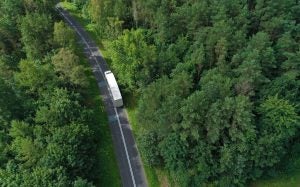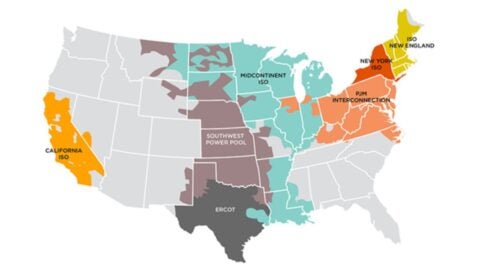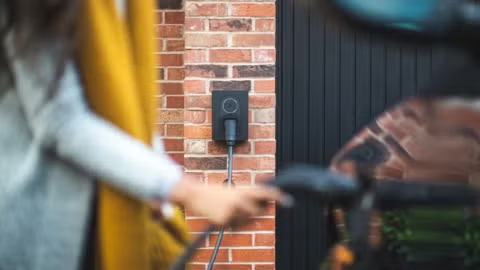New EDF Research Shows More than 330,000 Workers Already Make Electric Trucks and Buses Throughout the United States, Potential for Tremendous Future Growth
 The House of Representatives is expected to vote on the Build Back Better Act later this month, a bill with an unprecedented $555 billion in climate and clean air investments that will drive the creation of clean energy and manufacturing jobs. And the economic potential of manufacturing trucks and buses is underscored by two recent EDF reports – one examining the current landscape, and another offering a glimpse of what’s possible in the future.
The House of Representatives is expected to vote on the Build Back Better Act later this month, a bill with an unprecedented $555 billion in climate and clean air investments that will drive the creation of clean energy and manufacturing jobs. And the economic potential of manufacturing trucks and buses is underscored by two recent EDF reports – one examining the current landscape, and another offering a glimpse of what’s possible in the future.
Hundreds of thousands of Americans already make electric trucks and buses…
One of the new EDF reports found the zero-emission medium- and heavy-duty trucks supply chain already supports more than 330,000 jobs and has received more than $53 billion in announced corporate investments across the United States.
Among the key findings:
- Across the U.S., there are about 375 Medium and Heavy Duty Zero-Emission Vehiclescompanies operating at nearly 1,000 locations.
- Domestic manufacturing of vehicle components like batteries and electrical components is by far the largest driver of investment in the Medium and Heavy Duty Zero-Emission Vehicles supply chain.
- At least 44 states and Washington, D.C. have companies involved in the zero-emission truck and bus market.
- At least 22 states have more than $100 million in announced corporate investments.
The report — which is based on new market research by EDF and the consulting firm Strategy& (a member of the PwC network), of companies involved in the major segments of the Medium and Heavy Duty Zero-Emission Vehicles supply chain — offers a clear indication of the degree to which companies and communities across the country are already well invested in the transition to zero-emission vehicles. But a second recent EDF report offers a glimpse of what’s to come.
…and there is tremendous opportunity for growth
Last month, an EDF-commissioned case study found that a single assembly plant with 3,300 direct jobs producing Ford’s electric F-Series trucks, including the F-150 Lightning, could support 44,000 American jobs and more than $5 billion of U.S. gross domestic product.
The study assumed that the major electric components of the electric vehicles, including the battery, would be sourced domestically. It evaluated the broader impacts of the direct jobs to produce electric F-Series trucks and found the following economic and employment benefits:
- There would be $97 million in direct income benefits for every 1,000 direct jobs.
- There would also be $1 billion in direct, indirect, and induced labor income benefits (including, for example, household spending) for every 1,000 direct jobs.
- For every 1,000 direct jobs, there would be $1.6 billion in gross domestic product (GDP).
- For each direct job, there would be 13 to 14 total U.S. jobs.
EDF commissioned MJ Bradley & Associates, an ERM Group company, to conduct the report.
We need Congress to meet the moment
Both studies underscore the urgency of this moment in Congress. While the domestic industry is robust and growing, we need Congress to provide the infrastructure and support to ensure we beat our international competitors in the ongoing race for these new jobs and technology. We need Congress to quickly pass the Build Back Better Act to support the zero-emission vehicle supply chain, generate many more hundreds of thousands of high-quality jobs in the United States, improve air quality for all Americans, and fight climate change.












